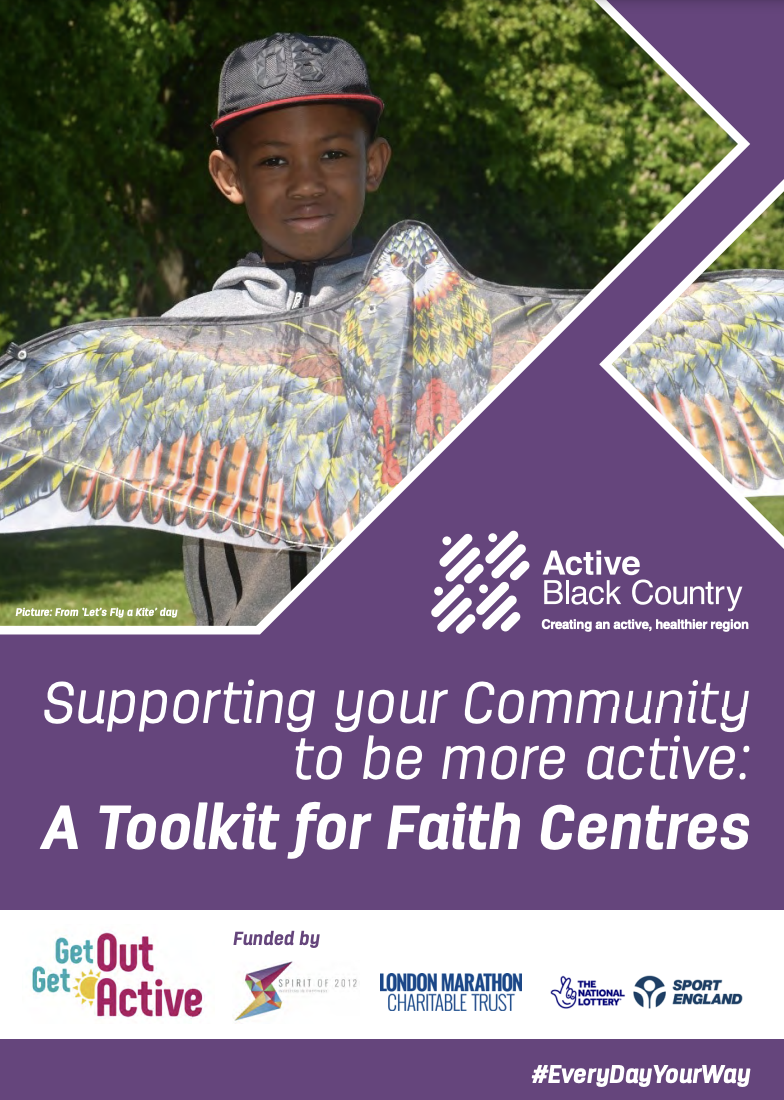
Written by Michael Salmon, Active Black Country
As the role of Active Partnerships has evolved in recent years so has our understanding of who the workforce is that we need to engage to tackle inactivity and health inequalities. We don’t really stop working with certain groups, rather we add to them along the way as we identify roles and individuals who are in positions of influence over underrepresented groups – people who, generally speaking, don’t immediately consider themselves to be part of the physical activity workforce.
In 2019 Active Black Country started to reach out to members of the faith community to better understand both the existing capacity and latent appetite to develop health and wellbeing offers for local people to benefit from. What we found was potential. A small number of faith groups were already leading the way on this, having developed established offers based around combat sports (such as Wolverhampton Wrestling Club, based at the Guru Nanak Satsang Gurdwara just outside Wolverhampton city centre) whilst many others expressed clear interest in working with us to explore this further. This inspired us to hold our first Faith and Activity Forum at the Balaji Temple in Sandwell that summer, bringing together representatives from all faiths along with Local Authority, Education, Health and National Governing Bodies of sport and partners to establish local momentum from which we could start to build upon.
An opportunity presented itself in the second iteration of the Get Out Get Active programme (known as GOGA), managed by Activity Alliance and funded by a partnership of Spirit of 2012, Sport England and the London Marathon Charitable Trust. We were awarded funding, starting in April 2020, to explore the potential of faith groups and faith leaders to reach the most inactive disabled and non-disabled people in Wolverhampton, one of the most inactive local authority areas in the country.
Our delivery model became very different from what was originally intended, borne out of both necessity and through the application of learnings derived elsewhere. The original asset-based intention was to identify faith centres with appropriate facilities and utilise that space through interventions co-designed with the surrounding community. The series of national and local lockdowns in 2020 and 2021 forced a rethink.
During the same period of time, through a partnership with the West Midlands Combined Authority, we’d been awarded a small pot of funding to pilot the social prescribing of walking and cycling. Restrictions of movement meant we couldn’t fund led rides or group walks, so we instead invested in the time of the workforce at four Primary Care Networks and asked them to identify a cohort of patients who were currently inactive and to suggest to them that they should walk or cycle twice a week (minimum) for 30 minutes. 85% of patients who received this advice were active as recommended. The evaluation suggested that the reason this worked was because of the people giving the message – health professionals are widely regarded as trusted sources of information. We started to consider how this could be replicated across different parts of the workforce.
The new capacity that social prescribing has provided, through integrated care, has extended our reach into underrepresented groups. However social prescribing as a concept, whereby we match need with opportunity in communities is nothing new. GOGA gave us an opportunity to upskill faith leaders with the requisite knowledge and the provide them with the necessary motivation to advise people in their communities, many of whom were increasingly isolated due to the impact of COVID-19, to use their daily hour (in which, as per regulations, they were allowed to go outside) to be active in local green and blue spaces. We worked with Activity Alliance to devise a short training course where faith leaders were introduced to some of the principles of health coaching and motivational interviewing along with the kinds of messages we wanted them to get across. They were set a target of activating 20 people in their community and were asked to check in with everyone for a period of 4-6 weeks so we could understand how they were using their active time. As with the PCN workforce, this was a highly effective way of reaching inactive people, with more than 90% of those who were given advice choosing to remain active for the full period.
This new workforce-oriented approach gave us a delivery model that meant we could continue to activate people without using indoor spaces or group activities and has also provided us with a more sustainable programme. Whilst our GOGA funding will be ending in 2023, the legacy of expanding our local physical activity workforce, giving people the requisite expertise and enthusiasm to give communities advice about physical activity, is arguably more valuable that anything our previous model could have provided.
Since the relaxation on restrictions of movement, we’ve adopted more of a mixed-model approach to delivery. We’ve introduced elements of our original model (and have produced a very successful programme of weekly yoga across the city’s 14 Gurdwaras) whilst incorporating less structured group activities (such as kite flying during family fun days) and, importantly, retaining the social prescribing element. The programme will end after Inter Faith Week in November 2023 when faith centres from across Wolverhampton will be invited to take part in a physical activity challenge where they’ll be asked to activate a minimum of 30 people across the course of the week.
The learnings from this programme have been considerable and have directly influenced Active Black Country’s strategic approach (through our People Plan) and our place-based work (through our proposal to the Commonwealth Active Communities programme). We sought to collate those learnings in the form of a toolkit for others to use. It can be downloaded here – https://www.activeblackcountry.co.uk/what-we-do/communities/faith-and-activity/. If anyone in the network wants a discussion about this, feel free to get in touch at michael.salmon@activeblackcountry.co.uk